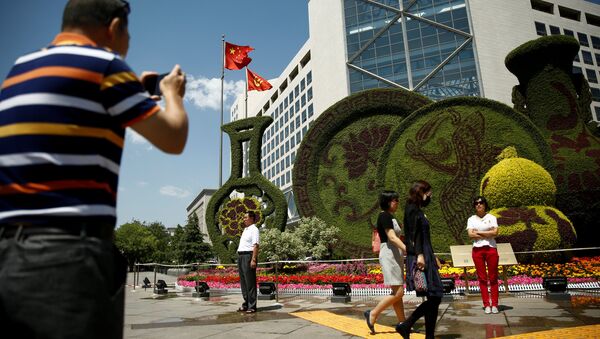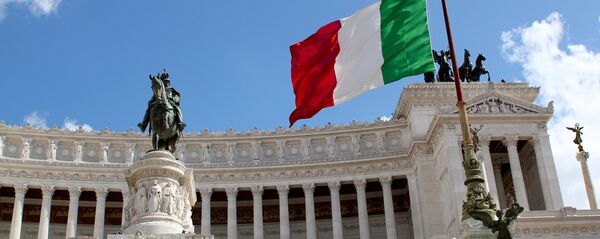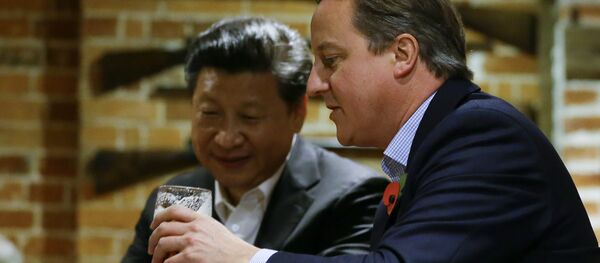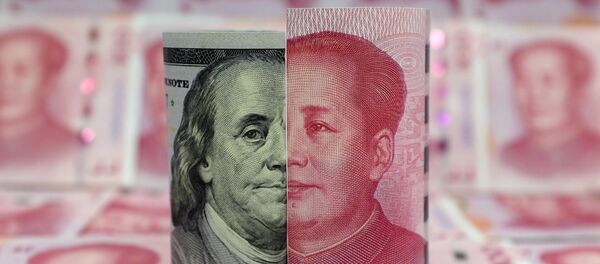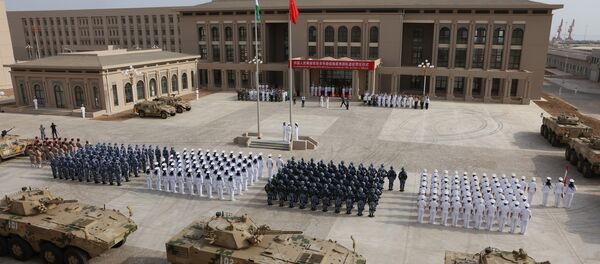On Saturday, Italy became the first G7 nation to back Beijing's ambitious infrastructure and development investment plan, signing a memorandum of understanding during the visit of Chinese President Xi Jinping to Rome.
The decision has prompted the European Commission and member nations to remind Italy about the responsibility to respect the EU unity in implementing its policies — a vital prerequisite to "effectively achieve their aims with China", according to Brussels.
EU Voices Concerns but Actively Follows Suit
According to Michel Liegeois, a professor at Belgium’s University of Louvain, Italy has actually taken the lead in relations of Europeans with China as other EU nations follow suit, despite "grumbling of the American State Department and the worries at the European Commission".
"After Italy, the Chinese premier was in France and [President] Emmanuel Macron could announce the sale of 300 Airbus aircraft to China Aviation Supplies Holding Company, 290 small A320 planes and 10 bigger A350. France is also going to build a giant wind farm off the Chinese coast for several billion euros. So, Italy is not alone to court China; Germany and France follow suit and the rest of Europe is also following", Liegeois told Sputnik.
Gilles Lebreton, a member of the European Parliament and of French National Rally (RN), in turn, took note of "worries" and "calls for unity" voiced by Paris and Berlin, describing them as nothing but "hypocrisy" or frustration over Italy's "agility".
READ MORE: Italy Mulls China's Belt & Road Project Amid US Reputation Loss Warning — Report
"Paris and Berlin would do better to sweep in front of their own door before criticizing the cooperation between China and Italy. It is astonishing to see that the French president, Emmanuel Macron, who had doubled all his European colleagues last year and had come back from Beijing with some 20 lucrative contracts in his pocket, is now allowing himself to criticize the Italian ‘populist’ government that he so much despises, for developing their own economic relations with Beijing", Lebreton told Sputnik.
The lawmaker, in general, slammed any calls for EU unity, adding that the RN party advocated bilateral agreements, as they "allow each EU member state to defend its national interests better than the European Commission would ever do".
Italy’s Reasoning
One of the well-known personalities who has spoken in favour of the project was former Prime Minister Romano Prodi, a centre-left politician and an ex-European Commission president, which put him on the same wavelength with the incumbent "populist" government.
The support for the deal, however, is not surprising as China's deal offers funding that could rejuvenate the grand old port cities of Trieste and Genoa along the maritime Silk Road, which was explored by one of the most famous Westerner travellers, Italy's Marco Polo, back in the 15th century.
The country also aims to revamp crumbling infrastructure, a problem laid bare by the deadly Genoa bridge collapse in August 2018.
READ MORE: US Seeking to Ruin Syria's Future as China's Belt and Road Partner — Lawyer
The national economy is, meanwhile, far from booming, with the second-highest debt in the eurozone dragging Italy into recession. The Italian government, comprised of the anti-establishment Five Star Movement (M5S) and the euroskeptic Lega party, however, came to power in June with high-spending plans.
Finally, Rome was guided by the overall trend and actually made an attempt to catch up with its EU counterparts, including Germany and France enhancing their cooperation with Beijing.
"The way we see it, it is an opportunity for our companies to follow and take advantage of China's growing importance in the world. We feel that amongst our European partners, Italy has been left out. It is time we change it", Italian Prime Minister Giuseppe Conte said.
Is China Conquering Europe Silently?
According to Nina Bachkatov, a professor of political sciences at the Liege University, the frustration over Italy’s move is part of EU traditional "ambiguity" with regard to the EU-Russia-China "triangle".
"What is happening now confirms it. It is aggravated by the fact that the EU feels compelled to develop its own policies (foreign policy, defence and security, trade) given the changes in Washington’s approaches, that are not only related to [US President] Donald Trump's personality. And Europe is far from ready", Bachkatov told Sputnik.
"It was enough to see the face of the Chinese president during the speech of Emmanuel Macron; it was that of a cat who already has a paw on the bird but prefers to play a little more with it, rather than kill him right away. China’s economic power is discreet but weighs enormously in politics", she opined.
READ MORE: China's Belt, Road Initiative Provides Alternative Amid US Sanctions — Academic
Jean-Luc Schaffhauser, a European Parliament member from France’s RN party, shares similar concerns, noting that he did not want to "swap a Chinese hegemonism against the current American hegemonism".
"Italy is in a difficult situation, partly because of the euro. (France is in a more fragile state.) We can understand her approach but Italy is disloyal… Once again, we see that the reality of the EU is that each country is playing its national interests, often to the detriment of its so-called partners", Schaffhauser told Sputnik.
According to the lawmaker, Chinese "expansionist" trade policies cause "serious imbalances in international trade, with the gigantic and structural surpluses that we know," and it is something that Europe should take into account while shaping its partnership with Beijing.
"The theory of free trade is that trade naturally balances; however, experience shows that it leads, on the contrary, to serious dysfunctions. President Trump is trying to fix these dysfunctions, the European states should follow his example. But the EU remains committed to free trade dogmas", he opined.
Let's Not Be Paranoid
Professor Liegeois, in contrast, warns against exaggerating "threats" of closer EU-Chinese partnership.
"I remember a time when the triumphant Japanese were the new Asian tiger and could afford to buy anything in the United States. They even bought the Rockefeller Centre if I remember well. It scared the Americans, but the United States has not become a subsidiary of Japan Inc. Let’s not be paranoid about China either", Liegeois told Sputnik.
Liegeois also pointed out that the rise in interest in the partnership with China came amid the loosening of the transatlantic link and lack of unity within the European Union itself.
READ MORE: Algeria Joins China's Belt, Road Initiative — Reports
"The discussions with the Americans over transatlantic free trade have not been a success in the last few years, under [President Barack] Obama. We failed to create a free trade zone, which leaves Europe unarmed now, in a world where China is a growing power and the logistics and cooperation that it is developing, coming by land across Central Asia and Russia to Europe. The European Union is very dispersed, to say the least. The hiccups of Brexit show how disunited we are", he stressed.
Beijing Says Project Is a Win-Win for All
The Chinese diplomats, in turn, reject claims about "aggressive" trade and investments, arguing that Beijing’s infrastructure and development project promotes "win-win" solutions.
"The Belt and Road Initiative (BRI) is not an economic offensive, as a number of industrialized countries have said. It is a win-win situation for all stakeholders. It builds bridges to overcome the unevenness between developed and developing countries. It also provides an antidote to the unilateralism and trade protectionism that prevail in the world", a Chinese diplomat told Sputnik on conditions of anonymity.
Aldo Carcaci, a member of the Belgian parliament from the People's Party (PP) is also a proponent of partnership with China. According to him, it will give new boost to economic development and more actively engage landlocked countries in global trade.
READ MORE: China-Africa Forum Vital to Advancing Belt & Road Project — Advisory Director
"This will not simply be a motorway and railroad link. The whole route will see the development of manufacturing units, of logistics centres, of economic projects that have not been thought-out yet. For landlocked regions and countries in Central Asia, it is a real blessing. For the environment, it is a blessing too; less emissions than with ships", Carcaci told Sputnik.
He expressed a belief that the BRI project, which also involves Russia, would pave the way for the latter’s closer economic cooperation with Europe and ultimately help remove mutual sanctions. According to the politician, "economic links are the best support of peace".
The views expressed in this article are solely those of the speakers and do not necessarily reflect the official position of Sputnik.
